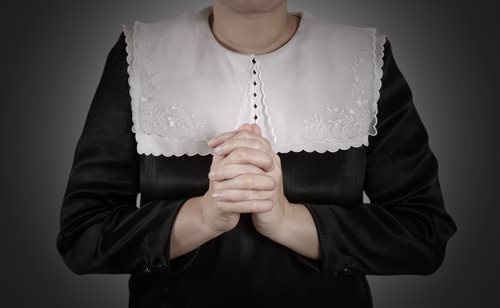Texas State Agencies Settle with EEOC For $175k

Texas State Agencies Settle with EEOC For $175k
The Texas Department of Agriculture and the Texas General Land Office have agreed to pay a combined $175,000 to settle a sex discrimination lawsuit brought by the U.S. Equal Employment Opportunity Commission (EEOC). The two state agencies were accused of paying female employees less than men for jobs that required equal skills, effort, and responsibilities. The settlement agreement has avoided a trial and serves as a reminder of the ongoing battle for gender equality in the workplace.
The Allegations
The EEOC filed separate lawsuits against the Texas Department of Agriculture and the Texas General Land Office in 2018 and 2019, respectively. Both lawsuits accused the state agencies of paying female employees less than men for jobs that required equal work. The EEOC alleged that female employees were discriminated against based on their sex and that the state agencies had violated the Equal Pay Act of 1963 (EPA) and Title VII of the Civil Rights Act of 1964.
The state agencies denied any wrongdoing but have agreed to settle the lawsuits for a total of $175,000. The Texas Department of Agriculture will pay $75,000, while the Texas General Land Office will pay $100,000. The settlement agreement also includes provisions requiring the agencies to conduct training on equal pay practices and report their progress to the EEOC over the next two years.
The Importance of Equal Pay
The settlement is a reminder of the ongoing fight for gender equality in the workplace, particularly when it comes to equal pay. Women in the United States still earn only 82 cents for every dollar earned by men, with even wider disparities for women of color. In addition, women are often subject to discrimination and harassment in the workplace, further limiting their earning potential and career growth.
The EPA and Title VII are federal laws designed to address these disparities and ensure that men and women are paid equally for the same work. The EPA prohibits employers from paying employees of one sex less than employees of the opposite sex for jobs that require equal skill, effort, and responsibility. Title VII prohibits discrimination based on sex, including inequitable pay practices.
Conclusion
The settlement between the Texas Department of Agriculture and the Texas General Land Office and the EEOC is a victory for gender equality in the workplace, but there is still much work to be done. The wage gap continues to persist, and women remain subject to discrimination and harassment in the workplace. Employers must remain vigilant in ensuring that they are not engaging in discriminatory practices and that employees are paid fairly for their work, regardless of their sex. The settlement serves as a reminder that gender equality is a fundamental right, and one that must be fought for and protected in all areas of society.
The Texas Department of Agriculture and the Texas General Land Office have avoided a trial in sex discrimination lawsuits from current and former employees. The EEOC alleged that both state agencies had been paying women less than men for job duties requiring equal skills, effort, and responsibilities.
Court documents by the Equal Employment Opportunity Commission also stated that when the women complained about the wage discrimination issue, they were retaliated against by their employers. One of the employees repeatedly brought up pay discrepancies with her superiors, but no action was taken by them to remedy the situation.
The violations of federal law were noticed by an employee who discovered that male program specialists hired into the Disaster Recovery Division of the Texas Department of Rural Affairs were paid substantially more than women who obtained the same position. The total pay difference between male and female program specialists was as much as $18,000 to $20,000.
The TDRA’s disaster recovery division was eliminated for budget reasons in 2011. While the three plaintiff women were eliminated at the time when the department was, their two male colleagues were kept on, working in the same capacity in a different department within the agency.
According to the EEOC, the conduct of the TDRA violated the federal Equal Pay Act, which also applies to state and local government agencies. Damages in the settlement are equivalent to the back pay that would ensure that the women in the case were paid as much as their male counterparts.
Wage discrimination has been illegal at all levels of government since 1963, but discriminatory practices have often persisted. Due to the fact that people are often reluctant to discuss or ask for information about salaries of other people working in their departments, and due to the fact that it can be difficult to compare skill and experience levels, some of these wage discrimination issues are discovered only years after the fact.
The EEOC has seen a marked uptick in wage discrimination complaints in the last year. Part of the reason for the continued increase may have less to do with an increase in the incidence of wage discrimination and more to do with a continued effort on the part of the EEOC to identify and punish discriminatory employers. The Lily Ledbetter Fair Pay Act of 2009 has also made it substantially easier for employees to sue for wage discrimination even if they find out about the discrimination a long time after it begins.
Source: eeoc.gov, uscourts.gov






























